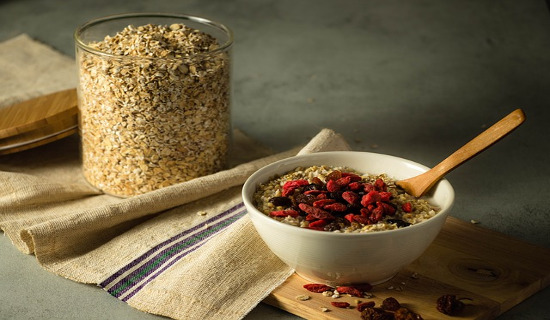
It’s no secret that many people turn to food as a means of comfort when they feel stressed out, but there’s good news, food can keep you calm when you’re under pressure. Before you get carried away, though, you should know that doesn’t mean heading out for fried chicken or mac and cheese.
That type of eating will lead to anxiety and guilt. No, there are foods that reduce stress and boost your levels of happiness! Your diet can help you fight stress!
Food Types That Fight Stress
• High in Fiber, Rich in Carbohydrates
Serotonin is a hormone that contributes to relaxation and according to researchers from MIT (On Brain Serotonin, Carb Craving, Obesity And Depression, Wurtman) carbohydrates are believed to trigger it (remember, there are healthy sources of carbs).
Fiber is great for satiating hunger and should help you avoid any junk food binges (particularly late at night). If you want, healthy comfort foods then turn to minestrone soup and baked sweet potatoes.
• Fruits and Vegetables
Sometimes there is just nothing better than a giant veggie platter to indulge in, which is good because they come with so many health benefits (excluding that ranch dressing).
Chronic stress destroys your immune system and makes it difficult to ward off disease so it’s important to boost your intake of immunity supporting foods, including citrus fruits, carrots, and acorn squash, all of which are good sources of vitamins and minerals that help bust stress.
Foods That Fight Stress
• Leafy Greens
Folate rich foods (like spinach) help produce dopamine and serotonin, which help regulate your mood. Those who consume high levels of folate are at a reduced risk of depression. Spinach is also rich in magnesium. Too little magnesium can cause fatigue and headaches, which makes stress worse. If you hate spinach, you can opt for salmon or cooked soybeans instead, both of which are high in magnesium.
• Fermented Foods
According to Harvard Medical School Health Publications, there is a direct link between gut health and anxiety, stress, and depression. The good bacteria heavily influence your brain chemistry and the signals that your brain receives from the vagus nerve. Regularly eating lactobacillus rhamnosus can reduce your stress levels thus relieving symptoms of anxiety and depression.
You can enjoy fermented foods from the supermarket or make your own (which would be the wiser option) whether you prefer yogurt or fermented vegetables.
• Oatmeal
According to WebMD, a warm bowl of oatmeal is comforting, and boosts serotonin, which is a calming brain chemical.
• Oranges
WebMd further reports that the vitamin C in oranges can curb stress hormones and also boosts immunity. One study found that levels of cortisol, the main stress hormone returned to normal in subjects after receiving vitamin C following a stressful task.
• Blueberries
WebMD reports that the pigment that makes blueberries blue is anthocyanin. They don’t just make your berries dark, though, they also boost dopamine production in the brain, and as we know it’s crucial for your mood, coordination, and memory function. Blueberries are old school superfoods.
• Avocado
This healthy fat can also brag a wealth of nutrients (including folate, potassium, the vitamin B complex, and Vitamin E, too). For stress, it gives you plenty of potassium, which helps reduce high blood pressure.
Eating half of one at lunch is enough to help you avoid unnecessary snacking between meals. That doesn’t mean eating only that for lunch, rather in addition to your normal lunch. They’re also efficient at keeping blood sugar levels stable, which then keeps your mood level (even when you’re under stress).
• Pistachios
Pistachios are good for reducing vascular constriction, which is a typical occurrence during stressful situations. This reduces the pressure on your heart and helps manage stress. It isn’t just the contents of the nut either; it’s the very act of shelling the pistachios that can be therapeutic. Always choose organic nuts.
Foods That Make Stress Worse
• High Fat
Cheeses, meats, and a lot of baked goods will leave you feeling lethargic. Unhealthy fats thicken the blood, increase the risk of heart attack, and contribute to stress. Choose lean proteins.
• Caffeine
Caffeine is helpful for providing us with a necessary energy boost and coffee has a wide variety of health benefits. However, indulging too much will only fuel your sleepless nights and cause you even greater stress. While you may be downing your third or fourth cup of the day for another boost there’s still caffeine in your system. Learn to limit your intake by cutting off the supply after 2 pm, this will reduce any jitters you are experiencing and should help you get a better night’s sleep.
• Sugar
Sugar is a simple carbohydrate that causes crashes since it quickly floods the blood stream and then leaves just as fast. So, remember when choosing your carbohydrates to opt for the complex variety (like beans and lentils).
Diet and stress are linked and not only will making bad decisions fuel that, but making the right decisions can relieve the symptoms and help you manage the issue.

